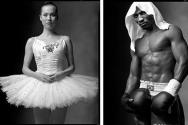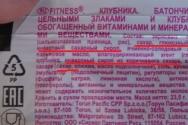Philosophical and ethical views of Bazarov (Turgenev I. S.)
The greatest creation of the master of psychology I.S. Turgenev. He created his novel at a turning point, when progressive people in society were interested in the future of Russia, and writers were interested in the search for a hero of the time. Bazarov (the characterization of this character clearly demonstrates what the most developed youth of that time was like) is central character of the novel, all the threads of the narrative come down to it. He is the brightest representative of the new generation. Who is he?
General characteristics (appearance, occupation)
As a writer-psychologist, Turgenev thought through everything to the smallest detail. One of the ways to characterize a character is the hero's appearance. Bazarov has a high forehead, which is a sign of intelligence, and narrow lips, which speak of arrogance and arrogance. However, the hero’s clothing plays a big role. Firstly, it shows that Bazarov is a representative of the raznochintsy democrats (the younger generation opposed to the older generation of liberal aristocrats of the 40s). He is dressed in a long black robe with tassels. He is wearing loose trousers made of coarse fabric and a simple shirt - this is how Bazarov is dressed. The image turned out to be more than telling. He does not chase fashion trends; moreover, he despises the elegance of Pavel Petrovich Kirsanov, whose appearance is completely opposite. Simplicity in clothing is one of the principles of the nihilists, whose position the hero took, so he feels closer to the common people. As the novel shows, the hero really manages to get close to ordinary Russian people. Bazarov is loved by the peasants, and the children of the courtyards follow on his heels. By occupation, Bazarov (characteristics of the hero in terms of profession) is a doctor. And who else could he be? After all, all his judgments are based on German materialism, where a person is considered only as a system in which its own physical and physiological laws operate.

Bazarov's Nihilism
Bazarov, whose character is certainly one of the most striking in the literature of the 19th century, adhered to one of the most popular teachings of the time - nihilism, which means “nothing” in Latin. The hero does not recognize any authorities, does not bow to any life principles. The main thing for him is science and knowledge of the world through experience.

External conflict in the novel
As noted above, Turgenev’s novel is multifaceted; two levels of conflict can be distinguished in it: external and internal. At the external level, the conflict is represented by disputes between Pavel Petrovich Kirsanov and Evgeny Bazarov.
Disputes with Pavel Petrovich Kirsanov concern different aspects of human life. Bazarov is most irreconcilable in relation to art, primarily poetry. He sees in her only empty and useless romanticism. The second thing the characters dialogue about is nature. For people like Nikolai Petrovich and Pavel Petrovich, nature is God's temple, in which a person rests, they admire its beauty. Bazarov (the character’s quotes confirm this) is categorically against such glorification; he believes that nature “is a workshop, and man is a worker in it.” In a conflict with Pavel Petrovich, the hero often behaves rather rudely. He speaks unflatteringly about him in the presence of his nephew, Arkady Kirsanov. All this does not show Bazarov from the best side. It is for this portrayal of the hero that Turgenev will subsequently suffer. Bazarov, whose characterization in many critical articles affects not in favor of Turgenev, was undeservedly scolded by the author, some even believe that Turgenev is slandering the entire younger generation, undeservedly accusing them of all sins. However, we should not forget that the older generation is also not praised in the text.

Relationships with parents
Bazarov's nihilism clearly manifests itself at all moments of his life. Parents who have not seen their son for a long time are waiting for him with rapture. But they are slightly embarrassed by their serious and educated child. The mother pours out her feelings, and the father sheepishly apologizes for such incontinence. Bazarov himself strives to leave his parents’ home as quickly as possible, apparently because he is afraid to suddenly show warm feelings. According to German materialism, a person cannot have any spiritual attachments. On his second visit, Evgeniy also asks his parents not to disturb him, not to bother him with their care.
Internal conflict
The internal conflict in the novel is obvious. It lies in the fact that the hero begins to doubt his theory, he becomes dissuaded from it, but cannot come to terms with it. Bazarov’s first doubts about nihilism arise when he meets Sitnikov and Kukshina. These people call themselves nihilists, but they are too petty and insignificant.

Love line in the novel
The test of the hero by love is classic for the novel genre, and the novel “Fathers and Sons” is no exception. Bazarov, an inveterate nihilist who denies any romantic feelings, falls in love with the young widow Odintsova. She captivates him at first sight when he sees her at the ball. She differs from other women in her beauty, majesty, her gait is graceful, every movement is royally graceful. But her most important trait is intelligence and prudence. It is prudence that will prevent her from staying with Bazarov. At first, their relationship seems friendly, but the reader immediately understands that a spark of love flashed between them. However, none of them is able to step over their principles. Evgeny Bazarov's confession looks ridiculous, because at the moment of revelation his eyes are more full of anger than love. Bazarov is a complex and contradictory image. What makes him angry? Of course, his theory collapsed. Man is and has always been a creature with a living heart, in which the strongest feelings glow. He, who denies love and romance, is conquered by a woman. Bazarov's ideas collapsed; they were refuted by life itself.
Friendship
Arkady Kirsanov is one of Bazarov's most devoted supporters. However, it is immediately noticeable how different they are. There is too much romanticism in Arcadia, as in his relatives. He wants to enjoy nature, he wants to start a family. Surprisingly, Bazarov, whose quotes addressed to Pavel Petrovich are harsh and unfriendly, does not despise him for this. He guides him on his path, realizing at the same time that Arkady will never be a true nihilist. At the moment of a quarrel, he insults Kirsanov, but his words are rather thoughtless than evil. Remarkable intelligence, strength of character, will, calmness and self-control - these are the qualities that Bazarov possesses. Arkady’s characterization looks weaker against his background, because he is not such an outstanding personality. But at the end of the novel, Arkady remains a happy family man, and Evgeny dies. Why?
The meaning of the novel's ending
Many critics reproached Turgenev for “killing” his hero. The ending of the novel is very symbolic. For heroes like Bazarov, the time has not come, and the author believes that it will never come at all. After all, humanity endures only because it has love, kindness, and respect for the traditions of its ancestors and culture. Bazarov is too categorical in his assessments, he does not take half measures, and his sayings sound blasphemous. He encroaches on the most valuable things - nature, faith and feelings. As a result, his theory crashes against the rocks of the natural order of life. He falls in love, cannot be happy only because of his beliefs, and in the end he dies altogether.

The epilogue of the novel emphasizes that Bazarov's ideas were unnatural. Parents come to their son's grave. He found peace in the midst of beautiful and eternal nature. Turgenev depicts the cemetery landscape in a pointedly romantic manner, once again conveying the idea that Bazarov was wrong. The “workshop” (as Bazarov called it) continues to bloom, live and delight everyone with its beauty, but the hero is no more.
Roman I.S. Turgenev's "Fathers and Sons" was published in 1862, and in it the author reflected main conflict, which split Russian society on the eve of the era of reforms. This is a conflict between common democrats who advocate decisive reforms, and liberals who prefer the path of gradual reforms. Turgenev himself belonged to the second camp, but he made the hero of the novel his ideological opponent, a commoner by birth and a nihilist by views, Evgeniy Bazarov.
Our first meeting with the hero takes place on May 20, 1859, when Arkady Kirsanov, returning after graduation to his native " Noble Nest", brings with him his new friend, Bazarov. The figure of Bazarov immediately attracts our attention: one can feel inner strength, calm confidence, independence in views, actions, and judgments. He undoubtedly had a strong influence on Arkady. Turgenev draws the reader’s attention to Bazarov’s careless manners, to his clothes, “a robe with tassels,” which the hero himself calls “clothes,” to his naked red hand, which obviously did not know white gloves and was accustomed to work. The author draws a portrait of the hero: we see his long and thin face with a wide forehead, “it was enlivened by a calm smile and expressed self-confidence and intelligence.” Bazarov was studying to become a doctor and next year he was going to “become a doctor.”
Bazarov's main subject of interest is natural sciences. He had deep and broad knowledge in physics, chemistry, biology, and medicine. He, as Arkady puts it, “knows everything.” But, as we soon see, Bazarov’s knowledge was somewhat one-sided. The hero recognized only those sciences that brought visible practical benefit. Therefore, Bazarov admired the natural sciences and did not recognize philosophy or art at all. He said: “And what is science - science in general? There are sciences, just as there are crafts, knowledge, but science in general does not exist at all.”
This limited view is explained by Bazarov’s beliefs. He calls himself a “nihilist,” that is, a person who “does not bow to any authority, who does not accept a single principle on faith, no matter how respected this principle may be.” Bazarov believes only in what can be verified by experience, experiment. He denies the usefulness of literature, painting, music, and art in general for humans, because, as it seems to him, they do not bring practical benefit. “A decent chemist is twenty times more useful than any poet,” says Bazarov. “Raphael is not worth a penny.” Turgenev's hero does not understand that art is as important for a person as practical sciences.
No wonder there is a wise Russian proverb: “Man does not live by bread alone.” These views of Bazarov undoubtedly impoverish him as a person, and we cannot accept them. In this regard, the image of Nikolai Petrovich Kirsanov, who knows how to subtly feel and understand beauty, seems more sympathetic to me: he loves Pushkin, enthusiastically plays the cello, and admires the beauty of Russian nature. Bazarov is indifferent to the beauty of nature, but looks at it purely practically. “Nature is not a temple, but a workshop, and man is a worker in it,” he says. But in Bazarov’s views there is also positive sides- this is the negation of outdated concepts and ideas. First of all, this applies to his views on the nobility and, in particular, on the aristocracy. Bazarov always emphasized his non-noble origins, although his mother comes from impoverished nobles and his parents even have their own little an estate and eleven serfs. The hero is proud of his closeness to the people, he even introduces himself in a folk way - Evgeny Vasiliev “My grandfather plowed the land,” says Bazarov.
He was accustomed to working since childhood, studied with “copper money,” supported himself, and did not take a penny from his parents. Great diligence, efficiency, perseverance, willpower and practicality - these are the qualities that Bazarov can deservedly be proud of and that attract us to Bazarov. He constantly works: he conducts experiments, “cuts frogs,” and is engaged in medical practice. These activities of Bazarov sharply contrast with the “sybaritism” of Arkady and the aristocratic idleness of Pavel Petrovich, whom Bazarov sincerely despises and considers a worthless person.
But not all of Eugene’s actions evoke our sympathy. We cannot approve of his feelings for his parents, whom he treats somewhat arrogantly and condescendingly and to whom he unwittingly causes pain. But they love him so sincerely, they are so proud of him! Bazarov's attitude towards Arkady can also not always be called comradely. Evgeniy sometimes seems rude and insensitive. But behind this external rudeness hides a tender, vulnerable heart, capable of deep feeling. Although Bazarov denies the feeling of love, he himself is capable of deep and sincere love. This proves his attitude towards Anna Sergeevna Odintsova. It is her who the dying Bazarov asks to call to him so that he can see him again before his death.
The death of Bazarov, so truthfully depicted in the novel, makes a strong impression on us. Turgenev himself considered Bazarov a tragic figure, because, according to the author, he had no future. DI. Pisarev in the article “Bazarov” wrote: “Not being able to show us how Bazarov lives and acts, Turgenev showed us” how he dies... To die the way Bazarov died is the same as to accomplish a great feat.” The hero dies without renouncing his views, his beliefs, without betraying himself. AND tragic death Bazarov is the final chord of his short but bright life.
The personality of Evgeny Bazarov, his views, actions, of course, are ambiguous; we can accept them or not. But they are undoubtedly worthy of our respect.
Roman I.S. Turgenev's "Fathers and Sons" was published in 1862, and in it the author reflected the main conflict that split Russian society on the eve of the era of reforms. This is a conflict between common democrats who advocate decisive reforms, and liberals who prefer the path of gradual reforms. Turgenev himself belonged to the second camp, but he made the hero of the novel his ideological opponent, a commoner by birth and a nihilist by views, Evgeniy Bazarov.
Our first meeting with the hero takes place on May 20, 1859, when Arkady Kirsanov, returning after graduation to his native “nest of nobility,” brings with him his new friend, Bazarov. The figure of Bazarov immediately attracts our attention: one can feel inner strength, calm confidence, independence in views, actions, and judgments. He undoubtedly had a strong influence on Arkady. Turgenev draws the reader’s attention to Bazarov’s careless manners, to his clothes, “a robe with tassels,” which the hero himself calls “clothes,” to his naked red hand, which obviously did not know white gloves and was accustomed to work. The author draws a portrait of the hero: we see his long and thin face with a wide forehead, “it was enlivened by a calm smile and expressed self-confidence and intelligence.” Bazarov was studying to become a doctor and next year he was going to “become a doctor.”
Bazarov's main subject of interest is natural sciences. He had deep and broad knowledge in physics, chemistry, biology, and medicine. He, as Arkady puts it, “knows everything.” But, as we soon see, Bazarov’s knowledge was somewhat one-sided. The hero recognized only those sciences that brought visible practical benefit. Therefore, Bazarov bowed to natural sciences and did not recognize philosophy or art at all. He said: “And what is science - science in general? There are sciences, just as there are crafts, knowledge, but science in general does not exist at all.”
This narrow-mindedness is explained by Bazarov’s beliefs. He calls himself a “nihilist,” that is, a person who “does not bow to any authority, who does not accept a single principle on faith, no matter how respected this principle may be.” Bazarov believes only in what can be verified by experience, experiment. He denies the usefulness of literature, painting, music, and art in general for humans, because, as it seems to him, they do not bring practical benefit. “A decent chemist is twenty times more useful than any poet,” says Bazarov. “Raphael is not worth a penny.” Turgenev's hero does not understand that art is as important for a person as practical sciences. No wonder there is a wise Russian proverb: “Man does not live by bread alone.” These views of Bazarov undoubtedly impoverish him as a person, and we cannot accept them. In this regard, the image of Nikolai Petrovich Kirsanov, who knows how to subtly feel and understand beauty, seems more sympathetic to me: he loves Pushkin, enthusiastically plays the cello, and admires the beauty of Russian nature. Bazarov is indifferent to the beauty of nature, he looks at it purely practically. “Nature is not a temple, but a workshop, and man is a worker in it,” he says.
But there are also positive aspects to Bazarov’s views - this is the denial of outdated concepts and ideas. First of all, this applies to his views on the nobility and, in particular, on the aristocracy. Bazarov always emphasized his non-noble origins, although his mother comes from impoverished nobles and his parents even have their own small estate and eleven serfs. The hero is proud of his closeness to the people, he even introduces himself in the folk way - Evgeny Vasiliev. “My grandfather plowed the land,” says Bazarov. He was accustomed to working since childhood, studied with “copper money,” supported himself, and did not take a penny from his parents. Great hard work, efficiency, perseverance, willpower, practicality - these are the qualities that Bazarov can deservedly be proud of and that attract us to Bazarov. He constantly works: he conducts experiments, “cuts frogs,” and is engaged in medical practice. These activities of Bazarov sharply contrast with the “sybaritism” of Arkady and the aristocratic idleness of Pavel Petrovich, whom Bazarov sincerely despises and considers a worthless person.
But not all of Eugene’s actions evoke our sympathy. We cannot approve of his feelings for his parents, whom he treats somewhat arrogantly and condescendingly and to whom he unwittingly causes pain. But they love him so sincerely, they are so proud of him! Bazarov's attitude towards Arkady can also not always be called comradely. Evgeniy sometimes seems rude and insensitive. But behind this external rudeness hides a tender, vulnerable heart, capable of deep feeling. Although Bazarov denies the feeling of love, he himself is capable of deep and sincere love. This proves his attitude towards Anna Sergeevna Odintsova. It is her who the dying Bazarov asks to call to him so that he can see him again before his death.
The death of Bazarov, so truthfully depicted in the novel, makes a strong impression on us. Turgenev himself considered Bazarov a tragic figure, because, according to the author, he had no future. DI. Pisarev wrote in his article “Bazarov”: “Without being able to show us how Bazarov lives and acts, Turgenev showed us how he dies... To die the way Bazarov died is the same as to accomplish a great feat.” The hero dies without renouncing his views, his beliefs, without betraying himself. And the tragic death of Bazarov is the final chord of his short but bright life.
The personality of Evgeny Bazarov, his views, actions, of course, are ambiguous; we can accept them or not. But they are undoubtedly worthy of our respect.
The novel "Fathers and Sons" was the result of the thoughts of I.S. Turgenev about the search for the hero of time. At this turning point for the country, each of the writers wanted to create an image that would represent the person of the future. Turgenev could not find in modern society a person who would embody all his expectations.
The image of the main character and his views
Bazarov, whose views on life still remain an interesting object of study, is the central character of the novel. He is a nihilist, that is, a person who does not recognize any authority. He questions and ridicules everything that has been established in society as worthy of respect and veneration. Nihilism determines Bazarov's behavior and attitude towards others. It is possible to understand what Turgenev’s hero is like only when the main storylines in the novel. The main thing you should pay attention to is the conflict between Bazarov and Pavel Petrovich Kirsanov, as well as Bazarov’s relationship with Anna Odintsova, Arkady Kirsanov and his parents. 
Bazarov and Pavel Petrovich Kirsanov
The clash between these two characters reveals the external conflict in the novel. Pavel Petrovich is a representative of the older generation. Everything about his behavior irritates Evgeniy. From the very moment of their meeting, they experience antipathy towards each other, the heroes conduct dialogues and disputes, in which Bazarov shows himself most clearly. The quotes he utters regarding nature, art, and family can be used as separate means of characterizing him. If Pavel Petrovich treats art with trepidation, then Bazarov denies its value. For representatives of the older generation, nature is a place where you can relax both body and soul, feel harmony and peace within yourself, it needs to be appreciated, it is worthy of artists’ paintings. For nihilists, nature is “not a temple, but a workshop.” Most of all, people like Bazarov value science, in particular, the achievements of German materialists.
Bazarov and Arkady Kirsanov
Bazarov's attitude towards others characterizes him in general as a good-natured person. Of course, he does not spare those people for whom he feels antipathy. Therefore, it may even seem that he is too arrogant and arrogant. But he always treated Arkady with warmth. Bazarov saw that he would never become a nihilist. After all, he and Arkady are too different. Kirsanov Jr. wants to have a family, tranquility, home comfort... He admires Bazarov’s intelligence, the strength of his character, but he himself will never be like that. Bazarov does not behave very noblely when Arkady is visiting his parents' house. He insults Pavel Petrovich and Nikolai Petrovich, calling them pompous aristocrats. Such behavior reduces the image of the main character. 
Bazarov and Anna Odintsova
Anna Odintsova is the heroine who becomes the cause internal conflict in the soul of the main character. This is a very beautiful and intelligent woman, she captivates everyone with a certain coldness and majesty. And so Evgeny, confident that mutual affection is impossible between people, falls in love. Some “woman” was able to conquer him, as Bazarov himself first calls Odintsova. His views crumble to pieces. However, the heroes are not destined to be together. Bazarov is unable to recognize Odintsova’s power over himself. He is in love, he suffers, his declaration of love is more like an accusation: “You achieved your goal.” In turn, Anna is also not ready to give up her peace of mind; she is ready to give up love, just not to worry. Bazarov’s life cannot be called happy, because at first he was convinced that there was no love, and then, when he truly fell in love, the relationship did not work out. 
Relationships with parents
Bazarov's parents are very kind and sincere people. They dote on their talented son. Bazarov, whose views do not allow tenderness, is too cold towards them. The father tries to be unobtrusive, is embarrassed to pour out his feelings in front of his son, and does his best to reassure his wife, telling her that she is bothering her son with excessive care and concern. Fearing that Evgeny will leave their house again, they try in every possible way to please him.
Attitude towards pseudo-nihilists
There are two characters in the novel, Bazarov’s attitude towards them is contemptuous. These are the pseudo-nihilists Kukshin and Sitnikov. Bazarov, whose views supposedly appeal to these heroes, is an idol for them. They themselves are nothing. They flaunt their nihilistic principles without actually adhering to them. These heroes shout slogans without understanding their meaning. Evgeniy despises them and demonstrates his disdain in every possible way. In dialogues with Sitnikov, he is clearly much taller. Bazarov's attitude towards the pseudo-nihilists around him elevates the image of the protagonist, but lowers the status of the nihilistic movement itself.
So, the way Bazarov treats people allows us to better understand his image. He is cold in communication, sometimes arrogant, but still he is a kind young man. It cannot be said that Bazarov’s attitude towards others is bad. The defining factors in them are the hero’s views on life and the interaction of people. Of course, his most important virtue is honesty and intelligence.
Events described in I. S. Turgenev’s novel “Fathers and Sons” on the eve of the peasant reform. The progressive public was divided into liberals and revolutionary democrats. Some welcomed the reform, while others were against such reform.
Evgeny Bazarov appears at the center of the novel. And Turgenev’s novel begins with Bazarov’s arrival at the Kirsanovs’ estate. Bazarov was the son of a doctor, he also went through a harsh school, then studied at the university on pennies, was interested in various sciences, knew botany, agricultural technology, geology well, never refuses medical care to people, in general he is proud of himself. But he aroused rejection and interest among people with his appearance: high growth, old cloak, long hair. The author also emphasized his intelligence, pointing to his skull and face, expressing self-confidence. But the Kirsanovs were the best of the nobles. Bazarov's views evoke different feelings in them.
The characterization of Bazarov in the novel “Fathers and Sons” sounds in one word: he is a nihilist, he vividly defends his position of denying everything. He speaks poorly about art. Nature is not an object of admiration for the hero; for him it is not a temple, but a workshop, and man is a worker in it. And Bazarov calls love an unnecessary feeling. Bazarov's views are not typical for representatives of the radical nobility.
The author takes his hero through many trials, as well as through trials of love. When he had a meeting with Odintsova, Bazarov was sure that there was no love and there would not be any. He looks at women indifferently. For him, Anna Sergeevna is only a representative of one of the categories of mammals. He said that her rich body was worthy of the theater, but he did not think about her as a person. Then, unexpectedly, a feeling flares up for him, which puts him into a state of absent-mindedness. The longer he was visiting Madame Odintsova, the closer he became to her, the more attached he became to her.
A person who strongly believed in his theory of nihilism, accepting it 100%, breaks down at the first real life situation. True love overtakes the hero of Bazarov's novel and he does not know what to do or how to act correctly. He does not lose his pride because of unrequited feelings, he simply steps aside.
Bazarov's attitude towards others is different. He tries to captivate Arkady with his theory. Kirsanov hates Pavel Petrovich, and considers Nikolai Petrovich a kind, but already obsolete person. A feeling of internal confrontation with himself grows inside him. Trying to build his life on the basis of nihilism, he cannot subordinate it to all these dry canons.
Denying the existence of honor, he, at the same time, accepts the challenge to a duel, because he considers it right. Despising the principle of nobility, he actually behaves in a noble manner, which Pavel Kirsanov himself admits. Actions that require a certain analysis frighten Bazarov and he does not always understand what to do.
No matter how Bazarov tries, he cannot hide his tender feelings for his parents. This is especially evident when Bazarov’s death approaches. Saying goodbye to Odintsova, he asks not to forget the old people. The realization that Bazarov is a nihilist, but he believes in the existence of love, is painful and painful for him.








